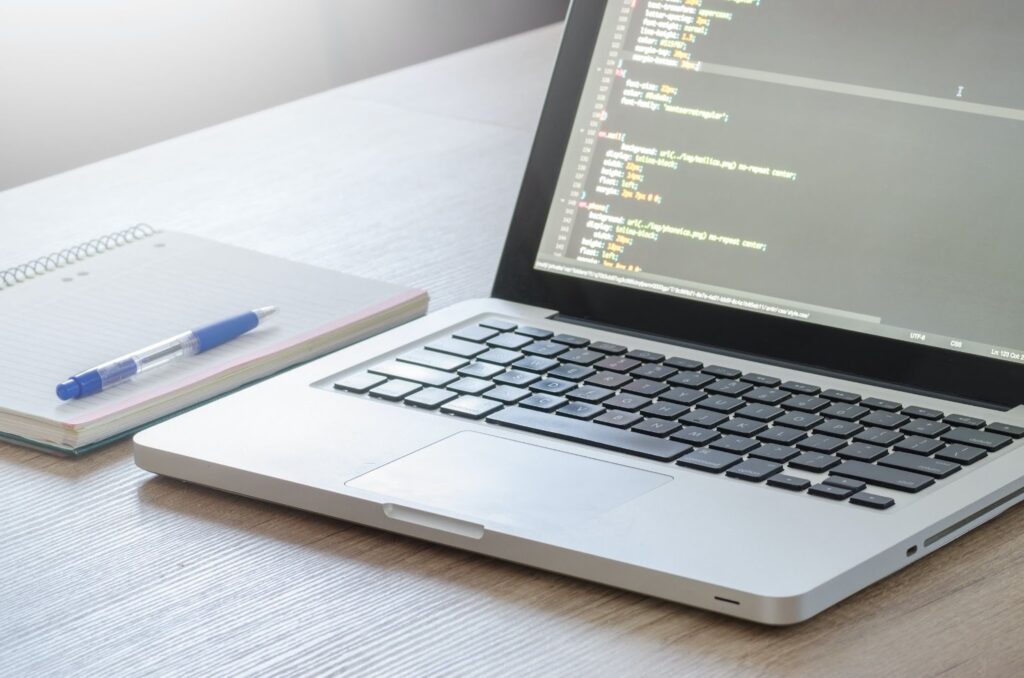In today’s fast-paced and ever-changing world, being emotionally resilient has become an essential skill. The ability to adapt and bounce back from setbacks is crucial for maintaining our well-being and achieving success. One way to develop this resilience is by mastering psychological flexibility. In this article, we will explore the concept of psychological flexibility, its connection to resilience, techniques to improve it, overcoming challenges, and how to measure your psychological flexibility.

Understanding Psychological Flexibility
Defining Psychological Flexibility
Psychological flexibility refers to the ability to adapt one’s thoughts, emotions, and behaviors in the face of challenging or uncertain situations, rather than being consumed by unhelpful thoughts or emotions.
When we are psychologically flexible, we can acknowledge and accept our thoughts and emotions without judgment. We understand that these thoughts and emotions are a natural part of being human, and we don’t try to suppress or avoid them. Instead, we learn to observe them with curiosity and compassion, allowing them to come and go as they please.
Furthermore, psychological flexibility involves being willing to take action in line with our values and goals, even when it feels uncomfortable or challenging. It means being able to make choices that align with our true selves, rather than being driven solely by fear or avoidance.
The Importance of Psychological Flexibility
Psychological flexibility is vital because it allows us to respond effectively to life’s ups and downs. It enables us to embrace difficult experiences, make necessary changes, and maintain a sense of purpose and well-being.
When we are psychologically flexible, we are better equipped to handle stress and adversity. Instead of getting caught up in negative thought patterns or getting overwhelmed by difficult emotions, we can step back and observe our experiences from a more objective standpoint. This allows us to respond more thoughtfully and intentionally, rather than reacting impulsively or defensively.
Moreover, individuals with high levels of psychological flexibility tend to experience lower levels of stress and better overall mental health. They are more likely to engage in positive coping strategies, such as seeking social support, practicing self-care, and engaging in activities that bring them joy and fulfillment.
Psychological flexibility also plays a crucial role in maintaining healthy relationships. When we are flexible in our thoughts and behaviors, we are more open to different perspectives and better able to communicate and collaborate with others. This can lead to more satisfying and harmonious interactions with family, friends, and colleagues.
Furthermore, psychological flexibility is closely linked to resilience. It helps us bounce back from setbacks and adapt to new circumstances. By being open to change and willing to learn from our experiences, we can grow and thrive even in the face of adversity. By cultivating this ability, we can enhance our overall well-being and lead more fulfilling lives.

The Connection Between Psychological Flexibility and Resilience
The Role of Psychological Flexibility in Building Resilience
Psychological flexibility can also play a crucial role in building resilience. It allows individuals to adapt, problem-solve, and recover quickly from adversity. Individuals can maintain a flexible mindset and find new ways to approach challenges.
For example, imagine a person who experiences a major setback in their career. They may initially feel overwhelmed and discouraged. However, with psychological flexibility, they can acknowledge these negative emotions and thoughts without becoming consumed by them which will enable them to move forward.
They can then focus on finding alternative solutions, exploring new career paths, or seeking support from others. This ability to adapt and problem-solve is a key aspect of resilience.
Furthermore, psychological flexibility enables individuals to develop a deeper understanding of their values and priorities. By accepting and embracing their emotions, individuals can gain insight into what truly matters to them. This self-awareness allows them to align their actions with their values, making them more resilient in the face of challenges. They can draw strength from their core values and use them as a compass to navigate difficult situations.
How Resilience is Enhanced by Psychological Flexibility
Consider a person who experiences a personal loss, such as the death of a loved one. While grieving is a natural and necessary process, individuals with psychological flexibility can navigate this difficult journey with resilience. They can acknowledge their grief and allow themselves to feel the pain, but they also can engage in self-care activities, seek support from others, and find meaning amid their loss. This adaptive coping strategy helps them build resilience and gradually move forward in their lives.
Moreover, psychological flexibility allows individuals to cultivate a growth mindset. Instead of viewing challenges as insurmountable obstacles, they see them as opportunities for growth and learning. This mindset shift enables them to approach setbacks with curiosity and openness, seeking new strategies and solutions leading to personal development.
In conclusion, psychological flexibility is a fundamental component of resilience. It empowers individuals to adapt, problem-solve, and recover from adversity. By accepting difficult emotions, maintaining a flexible mindset, and promoting adaptive coping strategies, individuals can enhance their resilience and thrive in the face of challenges.
Techniques to Improve Psychological Flexibility
Mindfulness and Psychological Flexibility
Mindfulness practices, such as meditation and breathing exercises, can significantly improve psychological flexibility. By cultivating present-moment awareness, individuals can observe their thoughts and emotions without judgment. This awareness allows for greater choice in responding to challenging situations.
When practicing mindfulness, individuals are encouraged to focus their attention on the present moment, including their thoughts, feelings, and bodily sensations. By doing so, they can develop a deeper understanding of their inner experiences and become more attuned to the present reality. This heightened awareness can help individuals recognize patterns of thoughts and emotions.
Mindfulness can enhance individuals’ ability to regulate their emotions. By observing their emotions without getting caught up in them, individuals can create space for more adaptive responses. This increased emotional regulation can lead to improved psychological flexibility, as individuals become less reactive and more responsive to their internal and external experiences.
Cognitive Reappraisal Techniques
Cognitive reappraisal involves reframing thoughts or situations in a more positive or constructive light. By challenging negative beliefs and adopting a more balanced perspective, individuals can increase their psychological flexibility. This technique enables them to generate alternative solutions and effectively navigate difficult circumstances.
Furthermore, cognitive reappraisal techniques can help individuals develop a greater sense of self-efficacy and control over their thoughts and emotions. By recognizing that they have the power to reinterpret their experiences, individuals can cultivate a sense of empowerment and agency. This increased self-efficacy can contribute to improved psychological flexibility, as individuals become more confident in their ability to adapt and thrive in various circumstances.
In addition to reframing thoughts, cognitive reappraisal techniques can also involve challenging unhelpful assumptions and biases. By examining the underlying beliefs that contribute to psychological inflexibility, individuals can identify and modify cognitive distortions. This process of cognitive restructuring can lead to a more accurate and balanced perception of oneself and the world, ultimately enhancing psychological flexibility.
Overcoming Challenges to Psychological Flexibility
Psychological flexibility is a key aspect of mental well-being and resilience. It refers to the ability to adapt and respond effectively to the ever-changing demands of life. However, there can be various barriers that hinder our psychological flexibility, making it important to identify and overcome them.
Identifying Barriers to Psychological Flexibility
One common barrier to psychological flexibility is the fear of change. Many individuals find comfort in familiarity and resist stepping out of their comfort zones. This fear can prevent them from embracing new experiences and adapting to different situations.
Another barrier is perfectionism, which involves setting unrealistically high standards for oneself. Perfectionists often struggle with accepting imperfections and mistakes, leading to rigid thinking patterns and a lack of flexibility in their responses to challenges.
Excessive self-criticism is yet another barrier to psychological flexibility. When individuals constantly judge and criticize themselves harshly, they create a negative internal dialogue that hampers their ability to adapt and grow. Self-criticism can lead to feelings of inadequacy and a fear of failure, limiting one’s willingness to take risks and explore new possibilities.
Identifying these barriers is crucial for overcoming them and enhancing psychological flexibility. It’s important to recognize when automatic thoughts or beliefs hinder our ability to adapt and respond effectively to challenges. By becoming aware of these barriers, individuals can begin to challenge and change their thinking patterns.
Strategies for Overcoming These Barriers
Overcoming barriers to psychological flexibility requires deliberate effort and practice. One effective strategy is engaging in self-reflection. Taking the time to examine one’s thoughts, emotions, and behaviors can help identify patterns that contribute to inflexibility. Through self-reflection, individuals can gain insight into their fears, perfectionistic tendencies, and self-critical thoughts, paving the way for change.
Seeking support from others is another valuable strategy. Sharing one’s challenges and seeking guidance from trusted friends, family members, or professionals can provide a fresh perspective and offer practical advice. Supportive relationships can also provide a sense of validation and encouragement, making it easier to overcome barriers to psychological flexibility.
Challenging unhelpful thoughts is a powerful technique for enhancing psychological flexibility. By questioning negative beliefs and replacing them with more realistic and adaptive ones, individuals can break free from rigid thinking patterns. This process involves examining evidence for and against automatic thoughts, considering alternative explanations, and reframing negative self-talk.
Building a supportive network is also crucial for enhancing psychological flexibility. Surrounding oneself with individuals who encourage personal growth and provide constructive feedback can create an environment that fosters flexibility. Engaging in activities that promote personal growth, such as attending workshops or joining support groups, can also enhance psychological flexibility by exposing individuals to new perspectives and experiences.
Measuring Your Psychological Flexibility
Tools for Assessing Psychological Flexibility
Several tools are available to assess an individual’s psychological flexibility. These tools typically assess various facets of flexibility, including acceptance, mindfulness, and cognitive defusion. Engaging with these assessments can provide valuable insights into areas for personal growth and development.
Interpreting Your Psychological Flexibility Score
Interpreting your psychological flexibility score requires understanding the specific tool used for assessment. A high score usually indicates a strong ability to adapt to challenging situations, while a lower score may suggest areas for improvement. It’s important to remember that psychological flexibility is a skill that can be developed and enhanced over time.
By mastering psychological flexibility, individuals can build resilience and thrive even in the face of adversity. Through adopting tools and techniques to improve flexibility, overcoming challenges, and measuring progress, individuals can cultivate the skills necessary for success and well-being. Remember, developing psychological flexibility is a journey, but one that can lead to a more fulfilling and resilient life.
Conclusion
In conclusion, mastering psychological flexibility is essential for building resilience. The ability to adapt, remain present, and respond effectively to challenges can significantly enhance our well-being and success. By understanding the concept of psychological flexibility, implementing techniques such as mindfulness and cognitive reappraisal, and overcoming barriers, we can progressively develop and measure our psychological flexibility. Embracing the journey of psychological flex
